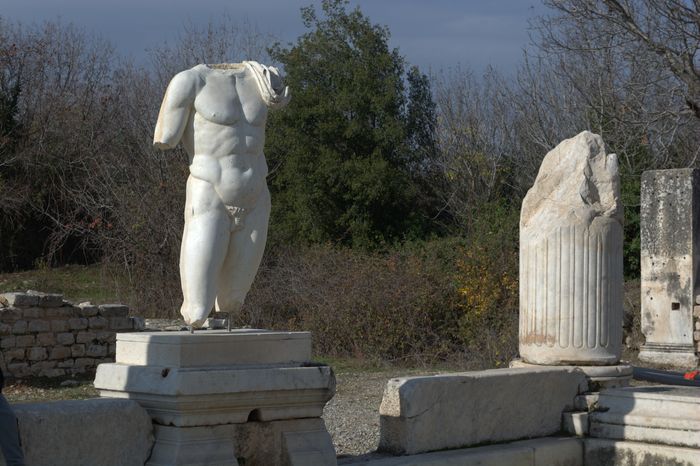All of these he utterly depopulated. For those who did not die in battle perished of disease and famine, which as usual followed in the train of war. Illyria and all of Thrace, that is, from the Ionian Gulf to the suburbs of Constantinople, including Greece and the Chersonese, were overrun by the Huns, Slavs and Antes, almost every year, from the time when Justinian took over the Roman Empire; and intolerable things they did to the inhabitants. For in each of these incursions, I should say, more than two hundred thousand Romans were slain or enslaved, so that all this country became a desert like that of Scythia.
Such were the results of the wars in Libya and in Europe. Meanwhile the Saracens were continuously making inroads on the Romans of the East, from the land of Egypt to the boundaries of Persia; and so completely did their work, that in all this country few were left, and it will never be possible, I fear, to find out how many thus perished.
Also the Persians under Chosroes three times invaded the rest of this Roman territory, sacked the cities, and either killing or carrying away the men they captured in the cities and country, emptied the land of inhabitants every time they invaded it. From the time when they invaded Colchis, ruin has befallen themselves and the Lazi and the Romans.
For neither the Persians nor the Saracens, the Huns or the Slavs or the rest of the barbarians, were able to withdraw from Roman territory undamaged.
Not only the Romans
In their inroads, and still more in their sieges of cities and in battles, where they prevailed over opposing forces, they shared in disastrous losses quite as much. Not only the Romans, but nearly all the barbarians thus felt Justinian’s bloodthirstiness. For while Chosroes himself was bad enough, as I have duly shown elsewhere, Justinian was the one who each time gave him an occasion for the war.
For he took no heed to fit his policies to an appropriate time, but did everything at the wrong moment: in time of peace or truce he ever craftily contrived to find pretext for war with his neighbors; while in time of war, he unreasonably lost interest, and hesitated too long in preparing for the campaign, grudging the necessary expenses; and instead of putting his mind on the war, gave his attention to stargazing and research as to the nature of God. Yet he would not abandon hostilities, since he was so bloodthirsty and tyrannical, even when thus unable to conquer the enemy because of his negligence in meeting the situation.
Read More about The Secret History part 4








